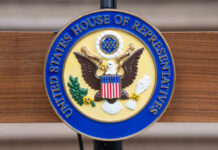
In a move that has stirred controversy among her own party’s ranks, Republican presidential candidate Nikki Haley proposed a drastic shift in social media policy requiring users to be verified by their names. This proposition, aimed at curtailing foreign interference and fostering civility, has drawn significant backlash from conservatives, raising concerns over constitutional rights and the freedom of anonymous speech.
On a Tuesday appearance on Fox News, Haley expressed her intention to mandate transparency from social media companies and to obliterate anonymity on these platforms. The former South Carolina governor and U.N. ambassador argues that such measures are necessary to combat foreign entities’ malign influence and ensure that users stand by their statements.
You’d expect to hear this kind of garbage from Biden or Newsom after meeting with Xi, not from a Republican presidential candidate talking about their top priorities.
Twitter trolls are not a national security threat. “Anonymity is a shield from the tyranny of the majority.” https://t.co/SO1iFRTBmY
— Blake Masters (@bgmasters) November 15, 2023
Haley’s stance has not gone unchallenged. Florida Gov. Ron DeSantis, a primary opponent, has vocally opposed Haley’s proposal, calling it “dangerous and unconstitutional” and likening it to policies adopted by China. DeSantis, bolstering his argument with historical precedent, reminded the public that anonymity in political discourse has roots in the founding of America, with the Federalist Papers having been published under a pseudonym.
DeSantis isn’t alone in his criticism. Vivek Ramaswamy, an entrepreneur and fellow GOP presidential contender, has decried the proposal as a flagrant constitutional violation, likening it to Democrat-led censorship initiatives. He and others contend that this stance is antithetical to the freedoms the Constitution safeguards.
Alexander Hamilton, John Jay & James Madison wrote the Federalist Papers under pseudonym. Here’s what they would say to @NikkiHaley if they were alive: get your heels off my neck & go back to England. https://t.co/cyHZXrWGcF
— Vivek Ramaswamy (@VivekGRamaswamy) November 15, 2023
The debate intensifies as some critics point out that Haley’s proposal could inadvertently suppress conservative voices. Concerns have been raised that linking real names to social media accounts could lead to real-world consequences, such as job losses or reputational damage, especially for those expressing conservative views in an increasingly polarized environment.
Journalists and legal experts have joined the fray. Tech lawyer Preston Byrne emphasized the constitutional protection of anonymous speech, a sentiment echoed by journalist Glenn Greenwald. Greenwald highlighted the historical importance of pseudonymous political commentary and criticized Haley’s proposal as a disturbing echo of authoritarian regimes.
Despite the heavy fire from her political rivals and pundits, Haley’s campaign has defended her plan as a “common sense” approach to national security. They argue that verifying social media users is crucial in countering the propagation of disinformation by adversarial states like China, Iran, and Russia.
The contentious proposal has thus become a focal point in the broader discussion among conservatives on how to handle the intersection of free speech, technology, and national security. While Haley views her plan as necessary for the country’s protection, her critics warn of the slippery slope toward government overreach and the stifling of constitutionally protected rights.
As the debate rages on, the implications of such a policy, if enacted, remain a topic of heated discussion within the Republican Party. The doubts about the proposal’s constitutionality stand as a testament to the ongoing struggle to balance security concerns with the preservation of fundamental American liberties.
















